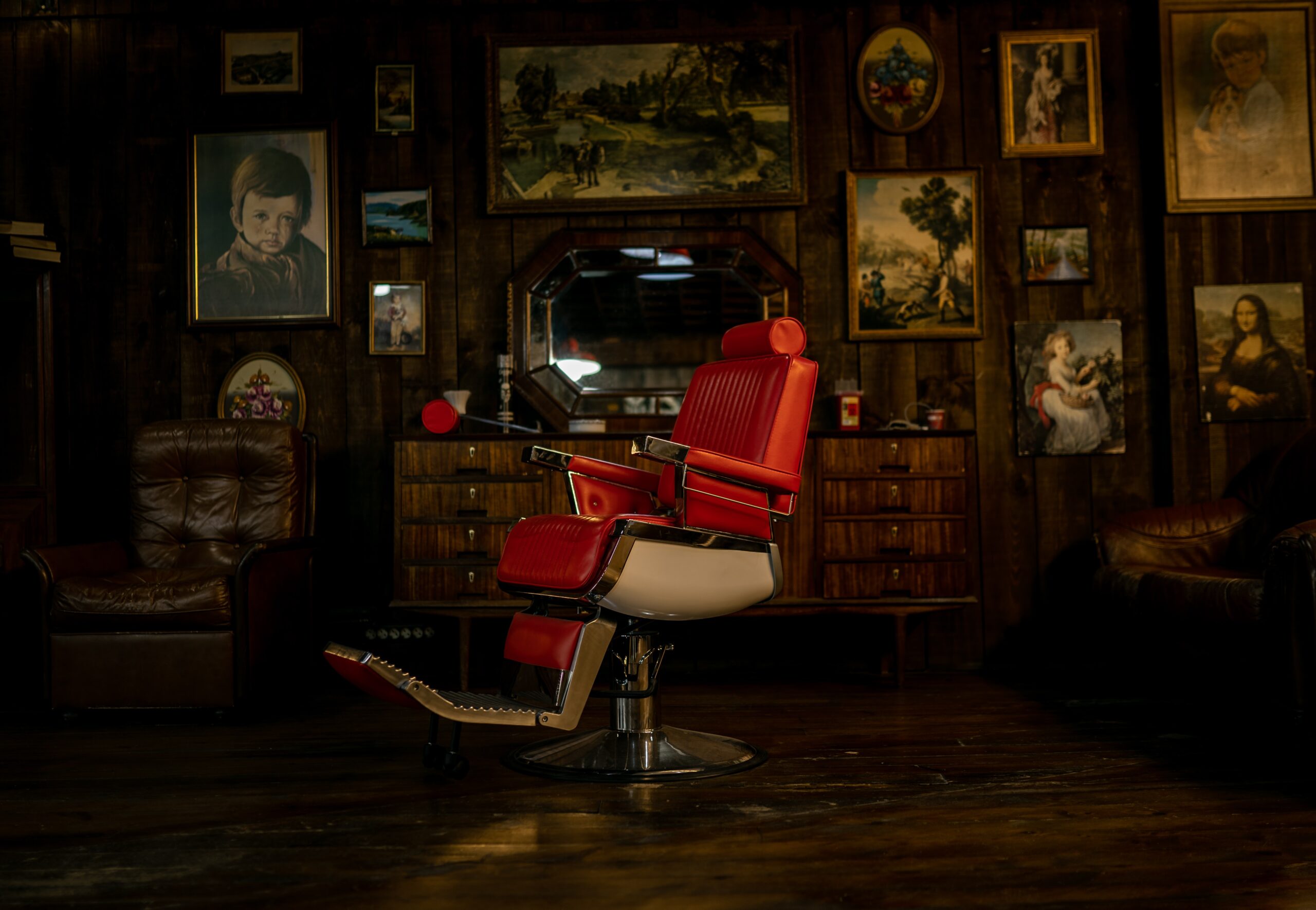The World’s Best Barbershop has a sign in the window with a number below the words Call Flame, and when you call Flame says he’ll be there in ten or fifteen minutes and eight minutes later rolls up in a ten-year-old Cadillac, tinted windows a quarter-rolled down so you can see his dry cleaning hanging from the backseat grab handle, asks where you’ve been getting your haircut and you tell him Southern Gentleman, how it’s kind of expensive and mechanical there, he shakes his head and sits you down and asks how you like this city, it’s okay you reply, he asks you to touch the hair on the back of your head where he’s cut, and you say let’s take it shorter for the summer, he removes the clip without turning off the clipper, which seems unusual but his hands move with such confidence and grace and he asks where you were born and raised, oh yeah?—Brooklyn? shit man, you know Flatbush? you know Bushwick? people there, he shakes his head, everyone so cutthroat all the time, yeah you agree, Flame adds, no one’s happy in the big city even though everyone got all this money they never smile. But down here you got more, more…what’s the word?
Freedom?
Flame sucks his teeth and says you know, that’s exactly it—freedom. Freedom, Flame repeats, turning off the clippers. His eyes lock with yours. He’s wearing a white ballcap forward, gray tank, blue sweats, socks and sandals, white stubble around his cheeks, chin, late forties, you think. Flame turns and pulls out a fresh razor and fits it into the shavette. Freedom, he repeats, that’s it, people don’t realize how valuable…he lines your beard along your cheek, steadies his hand by placing a pinky at the corner of your mouth, traces your temples, swivels for the clippers again, goes on, hey you know Coney Island? course you know Coney Island, I used to work at this place Platinum Cutz on Coney Island—that place was filthy, filthy—in his Jamaican accent he says it: fil-tee, filtee, he repeats, pausing, looking at you: fil-tee, hair all over the fucking place, all day they don’t sweep up but it don’t matter, they all lined up…doesn’t matter how a place looks, look at my place, shit everywhere, but the haircuts like in Coney Island…
The best, you say.
And he laughs, Coney Island man. Coney Island, he repeats, shaking his head. Coney Island, he keeps saying, and you’re laughing silently in the chair wondering how many times he can say it and the answer is: more; he is clearly taking pleasure in remembering, Coney Island, kid, he says, shaking his head, the kid tacked on a kind of conclusion, and you remember how you used to know some guy in college who used to say that, yo kid, and you’d think that’s such a New York thing, Big L, Wu-Tang, kid, turns out the kid wasn’t a coda, Flame is still repeating Coney Island, as if each time he says it he’s reliving a different moment from his twenty-three years in New York, giving greater resonance and deeper meaning to that place, Coney Island, the words blending in the repetition with him dropping the final ‘d’ so they assume a foreign and exotic sound, not because of his Jamaican accent but simply through the repetition of the name, so that it sounds like Coney Isle, a magic incantatory Neverland whose name takes you back, back to a photo of yourself there as a three-year-old, snowball-hatted and open-mouthed in joy at Luna Park, Cyclone visible in the background, clear blue winter’s day, the photo warped by sun, cracked, unprotected by a frame and suffering from time as it hangs on your father’s refrigerator, the child you were as happy as you’ve ever been—Coney Island was cold man, Flame goes on, Coney Island was real cold, don’t go out there in winter, psh, and I say, I know, my dad used to take me there on his days off when I was a kid and Flame laughs and says, you know, and repeats this too, you know, he says. Every winter I used to get sick out on Coney Island…and he trails off and asks you to tilt your head back so he can shape your neckline. You can’t easily talk with your head all the way back or when Flame rights your head and finishes your cheekline, balancing the razor-holding hand with his pinky finger close to the corner of your mouth so you can smell his hands and they smell…like hands—not dirty or clean but like they’re used to doing things hands do: spreading, gripping, steering, holding, positioning, and you think how much more you prefer the intimacy of one of Flame’s fingers so close to your mouth than the almost mechanical press and lift of the hot towel on your neck at Southern Gentleman, so that when it’s done and you’ve slicked some gel in your hair and Flame charges you ten percent less than the other guys, you thank each other and it’s amazing, you think, how after all that you not only look but feel so much better, and wonder what exactly about that haircut made you prefer it to Southern Gentleman, what exactly, what exactly, what exactly.
